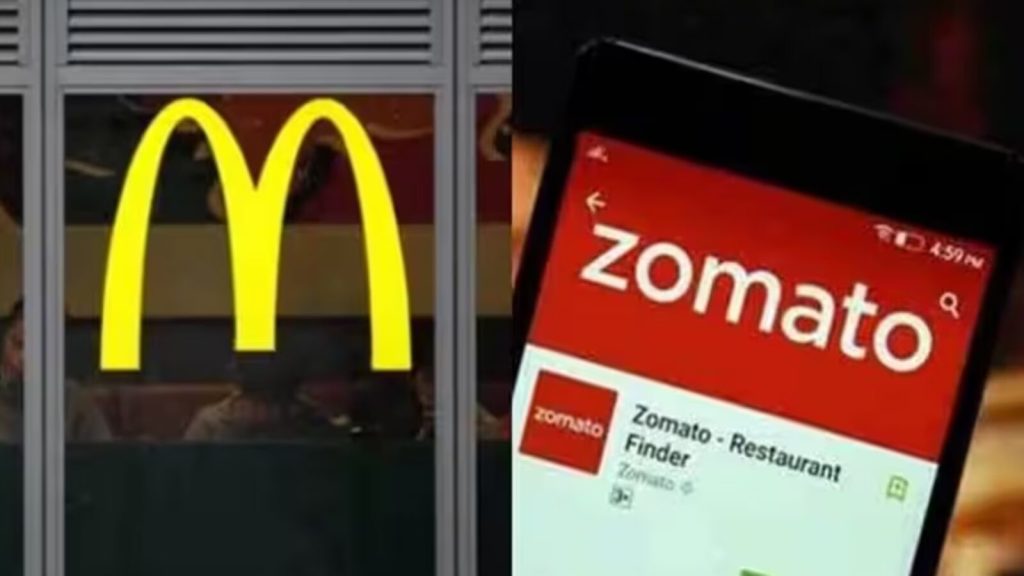In a recent legal story that highlights the crucial need for precision in the food delivery arena, Zomato and McDonald’s find themselves in danger, jointly fined with a hefty Rs 1 lakh by the District Consumer Dispute Redressal Forum in Jodhpur. The offense? Delivering a non-vegetarian order to a customer who had explicitly ordered vegetarian meal. This situation not only raises questions about accountability but also puts the spotlight on the responsibilities of food delivery platforms in ensuring accurate orders.

Unveiling the Incident:
It all began when a customer placed an order at McDonald’s, entrusting Zomato with the responsibility of handling the delivery. As the package was received, it contained an unexpected twist the customer’s requested vegetarian feast had been replaced with a non-vegetarian selection. Understandably upset, the customer chose to take formal action by filing a complaint with the District Commission. Little did they anticipate that this complaint would set the stage for a legal confrontation that would challenge the boundaries of responsibility in the food delivery world.
Zomato takes it’s Stance:
In the result of the judgment, Zomato made it clear that they intend to contest the District Commission’s ruling. Their argument centers on the assertion that their role primarily involves “facilitating the sale of food” rather than bearing full responsibility for order accuracy. This case raises a compelling legal query: to what extent should third-party food delivery services be held responsible for ensuring the precision and accuracy of deliveries?
- Advertisement -
Food Accountability:
The landscape of accountability in the food delivery industry is evolving, and the current scenario provides a clear illustration of this transformation. Food delivery platforms such as Zomato act as intermediaries, bridging the gap between customers and restaurants while managing the intricate delivery process. They also bear a significant responsibility to ensure that they deliver the customer’s order precisely as requested. In this particular case, despite the mistake originating at the restaurant, Zomato played a pivotal role in the delivery process.
The recent Rs 1 lakh fine imposed on Zomato and McDonald’s for delivering the wrong food order spotlights the complexities of accountability in the food delivery sector. It highlights the need for precision and accuracy in the delivery process and opens up legal debates about the extent of responsibility that food delivery platforms should shoulder in ensuring flawless deliveries. As this legal drama unfolds, it could have far-reaching consequences for the future of the food delivery industry and how it contends with order discrepancies and inaccuracies.


